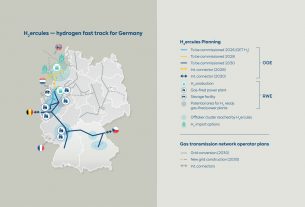United Kingdom – The government has announced funding for researchers at Cranfield University to investigate fresh approaches for producing hydrogen energy from biomass.
With the help of this technology, organic materials like wood, grass, or used brewery hops could be used to produce hydrogen while also removing CO2 emissions. The biomass goes through a process to transform it into a gas rather than being burned. The gas is then split into hydrogen and carbon dioxide, and the CO2 is then captured using a sorbent, a substance used to absorb liquids or gases.
Cranfield University, Helical Energy, Bioenergy Infrastructure Group, Gas Technology Institute, Petrofac, and Origen Power are working together on the Bio-HyPER project.
Project funding
The Department for Business, Energy, and Industrial Strategy (BEIS) announced the funding as part of its Hydrogen BECCS (bioenergy with carbon capture and storage) Innovation Programme through the Net Zero Innovation Portfolio (NZIP).
The HyPER pilot plant is currently being built on campus, and the £250,000 funding for the Bio-HyPER project will enable Cranfield researchers to conduct a feasibility study looking at integrating biomass fuel.
The BEIS has funded numerous additional projects in which Cranfield is also involved. One of these, led by Helical Energy, aims to use innovative technology to gasify other organic or natural fuels at high temperatures and pressures. Another project run by the University of Aberdeen aims to create a novel and environmentally friendly method of producing hydrogen from the organic material found in various types of waste.
Cranfield’s primary focus is sustainability, which permeates much of the university’s research. This includes everything from energy to design, manufacturing to the environment, agrifood to transportation, water to aerospace, and everything in between.




